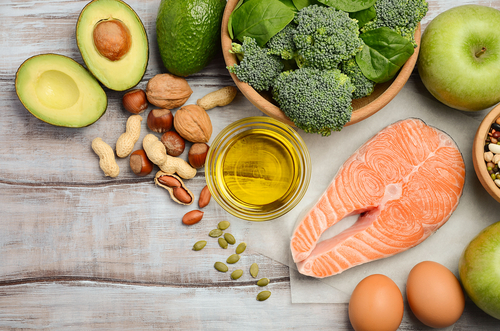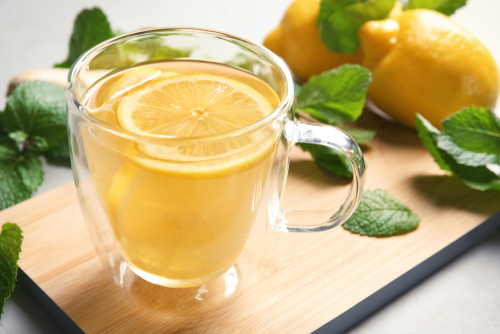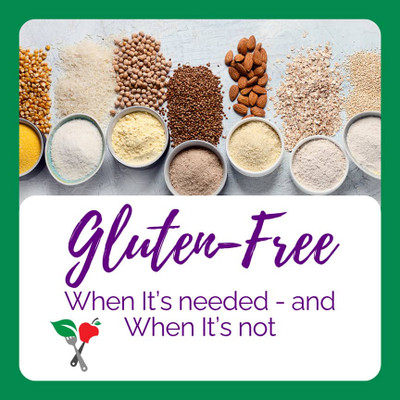Fighting Foods To Chase Away Cold, Flu, and Winter Blues
Winter can be a challenging time for both our physical health and mental well-being. Many people experience colds, flu and the winter blues this time of year. The shorter days, colder weather, and less sunlight can leave us feeling low.
When it comes to fighting off colds, flu and the winter blues, the right foods can make a big difference. Opting for nourishing foods like lean proteins, whole grains, fruits, vegetables, and fish can help you overcome the desire for junk food, boost your immune system and energy, and improve mental focus. These foods may not completely ‘cure’ your cold, flu or mood, but they can help chase them way or prevent them in the first place!
Key Vitamins and Nutrients to Boost Immunity
Winter marks the peak of cold and flu season, it’s essential to focus on strengthening your immune system. Superfoods, rich in essential nutrients and antioxidants, offer a natural way to boost our immune system and enhance our mood. Incorporating immune-boosting foods into the diet can provide numerous benefits, from strengthening immune defenses to lifting spirits.
Healthy eating, maintaining an active lifestyle, getting enough rest, and managing stress are all important for overall health. Several nutrients play a key role in boosting immunity and preventing illness.
1. Vitamin C
Vitamin C is a well-known immune booster. It stimulates the formation of antibodies and strengthens the body’s defense against infection. Foodsrich in vitamin C include:
Citrus (like oranges, lemons, and grapefruits) and Berries
Tomatoes, Bell Peppers, Broccoli, and Leafy Greens
Regularly incorporating these foods into your diet can help enhance your immune response and reduce your susceptibility to illness.
2. Probiotics
Probiotics can also help improve immunity by balancing gut flora, which is closely tied to immune function. Yogurt and kefir with live and active cultures are excellent sources of probiotics, and they can help promote a healthy gut microbiome. A balanced gut flora has been shown to improve overall health and may contribute to a stronger immune system.
3. Beta Carotene
Beta carotene is an antioxidant that helps regulate the immune system. It also provides protection against infections. Foods rich inbeta carotene include:
Carrots, Pumpkin, Sweet Potatoes, and Dark Leafy Greens (like Spinach and Kale)
Including these colorful vegetables in your diet can support your immune function and help protect against illness.
4. Vitamin E
Vitamin E is another important antioxidant that contributes to immune function. It works by neutralizing free radicals that can damage the body’s cells. Without adequate vitamin E, the immune system may not function at its best.Foods high in vitamin E include:
Wheat Germ, Almonds, Sunflower Seeds, Spinach, and Avocados
A diet rich in vitamin E can help strengthen your body’s defenses and improve its ability to fight off infections.
5. Protein, Zinc, and Selenium
Protein, zinc, and selenium are essential nutrients that play key roles in the body’s defense mechanisms. Protein helps repair tissues and fight infections, while zinc is involved in the production of immune cells. Selenium supports the immune system by regulating oxidative stress and inflammation. Good sources of these nutrients include:
Seafood, Meat, Dairy Products, Legumes, Nuts, and Seeds
Incorporating a variety of these foods into your diet can help ensure your immune system stays strong throughout the winter season.
Top Foods to Chase the Winter Blues Away
Winter blues, or seasonal affective disorder (SAD), can negatively impact your mood andmental health. Fortunately, certain foods can help enhance your mood and keep you feeling positive.
1. Fermented Foods
In addition to supporting the immune system, including probiotics in your diet can positively affect your mood and mental well-being. Emerging research suggests that the gut and brain are closely connected.
Look for yogurt that contains “live and active cultures,” as well as other foods like kombucha, miso soup, sauerkraut, pickles, and tempeh. By promoting gut health, these foods may have a lasting positive impact on both your body and mind.
2. Walnuts and Fatty Fish
When it comes to brain health and mood-boosting, omega-3 fatty acids are key. Oily fish like salmon, tuna, mackerel, and bluefish are some of the best sources of omega-3s, which have been shown to support brain function and help combat depression.
Omega-3 fatty acids can also improve circulation, reduce inflammation, and decrease the risk of heart disease. Walnuts are an excellent plant-based alternative for omega-3s. These nuts are one of the richest plant sources of these brain-boosting fats, making them a great addition to your diet.
3. Whole Grains
Whole grains are an excellent source of fiber providing steady energy throughout the day and regulating blood sugar levels. Foods like whole-wheat pasta, brown rice, oatmeal, quinoa, and sweet potatoes are rich in fiber and assist in the production of serotonin, a neurotransmitter often referred to as the "feel-good" hormone.
Serotonin plays a major role in stabilizing mood and promoting overall well-being. Including more whole grains in your diet can improve your mood and help you feel full and satisfied, reducing the temptation for unhealthy, calorie-dense foods.
In addition to whole grains, dark chocolate and bananas can help boost serotonin levels in the brain. Bananas are high in vitamin B6, which helps produce the ‘feel good’ neurotransmitter.
4. Green Tea
Green tea is a great beverage choice, particularly in winter months. It’s rich in the amino acidtheanine, which provides an anti-stress effect and promotes relaxation without causing drowsiness. Theanine can help calm the mind, making it a great alternative tocoffee, which may cause anxiety or jitters for some people.
Drinking green tea can also provide a gentle, relaxed focus, making it easier to concentrate and stay productive. Plus, green tea is packed with antioxidants that can support overall health.
5. Turmeric
Turmeric is a bold and vibrant spice found in many Indian and Asian curry dishes. It has been praised for its wide range of health benefits, including its anti-inflammatory properties. One of the active compounds in turmeric, curcumin, has been shown to have mood-enhancing effects.
Some studies suggest that curcumin can help alleviate symptoms of depression by increasing levels of certain neurotransmitters like serotonin and dopamine. Adding turmeric to your diet may help lift your mood and contribute to overall wellness, especially during the colder months when comfort food cravings can be intense.
By making these foods a regular part of your meals, you can combat the winter blues with increased energy, sharper mental focus, and reduced cravings for unhealthy comfort food. These foods work together to support your brain, gut, and immune system, helping you feel better both physically and mentally.
Herbal Remedies: Friend or Foe?
If you're considering herbal supplements to boost immunity, it's important to exercise caution. While herbs like Echinacea and ginseng are popular for their immune-boosting properties, research suggests that prolonged use of these herbs may actually lower immunity. If you’re considering using herbal remedies, be sure to consult with a healthcare professional to ensure they’re safe and effective for your personal needs.
A hot cup of herbal tea may be a good choice for alleviating some symptoms associated with a cold or flu. Tea can help you stayhydrated while sick which can help thin mucus making it easier to expel. Hot tea can provide immediate relief for a sore throat by soothing irritation and reducing inflammation and the steam can help open nasal passages making it easier to breathe.
Ginger, peppermint, or echinacea tea contain properties that may support the immune systems. Ginger has anti-inflammatory properties and echinacea is believed to help reduce the duration of cold symptoms. Peppermint tea may help with congestion and digestion and has a cooling effect that can soothe sore throats.
A soothing cup of hot tea can also support Seasonal Affective Disorder by providing a comforting and soothing experience which can help create a sense of relaxation. Teas such as black, green, or oolong tea contain caffeine which can give a gentle mood life and help with fatigue as well as improve alertness, concentration, and energy levels. Chamomile, lavender, or passionflower tea before bedtime may promote relaxation and better sleep if you are having trouble sleeping.
Creating a Better Winter Diet
By focusing on a balanced diet that includes mood-boosting and immune-supporting foods, you can navigate the winter months with more energy, better health, and a brighter outlook. The right foods, such as probiotics, omega-3-rich fatty fish, whole grains, green tea, and turmeric, can help lift your spirits and fight colds and fluduring the colder months.
Choosing nutritious meals along with a healthy lifestyle that includes staying active, reducing stress, and getting enough rest, will help you avoid seasonal affective disorder and also prime your body to fight all the germs and viruses being passed around.
Let Seattle Sutton’s Healthy Eating help! Not only do our meal plans contain numerous health benefits, but they also have fresh ingredients that help you live the healthy lifestyle you want to live!











 Weight Loss
Weight Loss Health & Wellness
Health & Wellness Diabetes
Diabetes Heart Health
Heart Health Motherhood & Family
Motherhood & Family Dietary Restriction
Dietary Restriction Other Health Conditions
Other Health Conditions About SSHE
About SSHE


